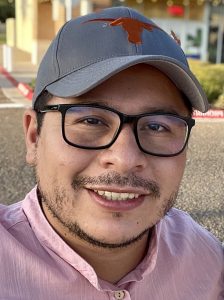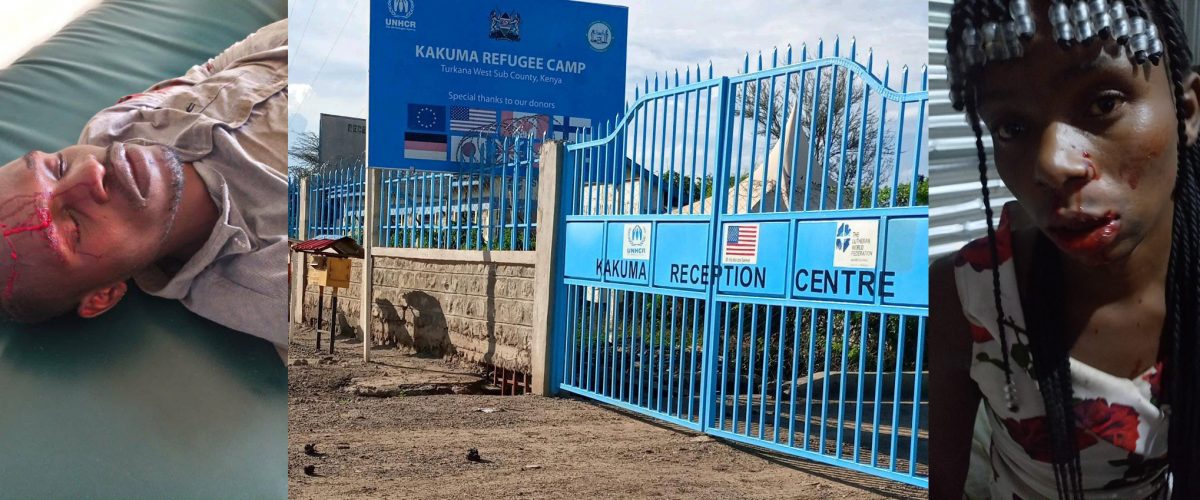The Biden administration’s asylum restrictions place LGBTQ migrants in grave danger by exposing them to longer waits in nations hostile to those with alternative sexual orientations and gender identities, immigration rights advocates said during a June 22 webinar.

Aaron Morris
“It will ultimately cost the lives of some queer people and subject others to persecution and torture, and these are people who have come to the United States to flee that exact problem,” said Aaron Morris, executive director of Immigration Equality.
He was among the panelists for the webinar hosted by the Welcome With Dignity campaign. The discussion was designed to expose the risk Biden’s asylum ban poses for lesbian, gay, bisexual, transgender and queer people fleeing persecution in Latin America, Africa and other countries, said moderator Paola Ariza, communications strategist for the campaign.
The White House policy was implemented in May to replace Title 42, the Trump administration rule that used COVID-19 concerns to deport migrants from the U.S. before they could apply for asylum as guaranteed in the U.S. Immigration and Nationality Act and by international treaty.
“And because of that, the new Biden rule is, in fact, illegal because it abrogates that right by adding additional hurdles that aren’t in the statute,” Morris said. “The result will be that the Biden administration will presumptively deny asylum claims for LGBTQ persons no matter how meritorious their claims, and no matter how deserving they are, if they haven’t done one of three things.”
The first option is to apply for, and be denied, asylum in another nation enroute to the United States — an especially risky proposition for LGBTQ people, he said. “Asking a queer person to file for asylum in another unsafe country doesn’t make any sense.”
A second approach is to use the CBP One smartphone app to apply for meetings with American immigration officials. “But that has a whole host of problems, too, because you have to have a smartphone. It’s glitchy. It’s not available in all areas, it’s not available in all languages and there are only a very limited number of appointments available.”
The third option is to file for parole. “It requires a person to have a fiscal sponsor in the United States willing to basically fund the asylum seeker for the foreseeable future. And a lot of LGBTQ people lack both the resources and the contacts in the United States to make parole,” Morris said.
The result is that migrants are kept in appalling conditions for extended periods of time with no guarantee of asylum in the U.S. “They’ve forced LGBTQ people to stay in unsafe places for weeks, for months, maybe for years, as they fight to get through one of these pathways.”

Estuardo Cifuentes
Asylum seeker Estuardo Cifuentes testified to the horrors of waiting in Mexico while seeking safety in the U.S.
“I was one of the more than 75,000 people who were sent to Mexico from the United States under the ‘Remain in Mexico’ program of the Trump administration,” said Cifuentes, a client services manager for Lawyers for Good Government. “I was trying to protect my life from persecution by the government of Guatemala solely for being a member of the LGBTQ community. And for more than 18 months, I was exposed to the insecurity and the lack of basic resources in a country where I had already been kidnapped for 21 days.”
While that wave of migrants faced the Migrant Protection Protocols under Trump, those who followed encountered Title 42 and, eventually, the Biden asylum ban, Cifuentes said.
“People are in a limbo. They are exposed to different violations of their rights. There is the lack of security, the lack of food, the lack of shelters — it’s getting worse every day. And every day thousands of migrants are living on the streets without access to food and drinking water, and they have to decide whether to buy internet for their phone to request an appointment in the CBP One app or buy at food for the children.”

Emil Keme
Being stuck is problematic for LGBTQ migrants from countries where they are persecuted for their gender identity and sexual orientation, said Emil Keme, cultural adviser with the International Mayan League.
He cited Guatemala as a country where anti-LGBTQ discrimination recently has escalated through repressive legislation, killings and widespread mistreatment. “And similar experiences have also been happening in countries like El Salvador, Honduras and Nicaragua through corruption, homophobia and patriarchy. Many members of the LGBTQ community have no option but to flee to save their lives.”

Zack Mohamed
The reality is even harsher for Black LGBTQ migrants, said Zack Mohamed, deportation defense coordinator for the Black LGBTQIA+ Migrant Project and a former Somali refugee.
“A lot of them face the known fact that anti-Blackness is global and as they are forced to flee their home and seek a new home in the U.S., they’re often met with persecution. Their trauma is exacerbated, and they are criminalized for just seeking safety and for being who they are,” Mohamed explained.
He added Uganda to the list of countries from which LGBTQ people are compelled to flee. The nation recently signed a strict anti-homosexuality act that includes the death penalty for certain acts. Kenyan lawmakers are considering similar legislation.
“A lot of Black folks globally are being displaced at high rates due to laws that are being placed, especially attacking and persecuting LGBTQ folks,” he said. “We see that in Nigeria. We see that in Ghana, Jamaica, even parts of Central America.”

Nicole Ramos
Black and other LGBTQ migrants also face discriminatory treatment at the U.S. border, said Nicole Ramos, border rights project director for Al Otro Lado, which provides legal services for refugees and migrants in the U.S. and Tijuana.
“We’ve seen a dramatic rise in restrictive border policies that limit access to the asylum process for migrants entering at the Southern border,” she said. “And while this impacts all asylum seekers negatively, it has a disproportionate impact on LGBTQ refugees. And those consequences are increased exponentially when those queer refugees are also linguistically isolated, indigenous and/or Black.”
Related articles:
Passage of anti-homosexuality bill in Uganda rattles LGBTQ community in Kenya
AWAB decries Uganda’s anti-gay law as ‘another step backward’
What happens when Tom Ascol finds Ted Cruz to be too liberal and quotes Leviticus 20:13?
Egged on by evangelical influence, Ugandan Parliament passes harsh new anti-gay bill
Ghana considers a new law punishing same-sex relations, and LGBTQ community fears reprisals


